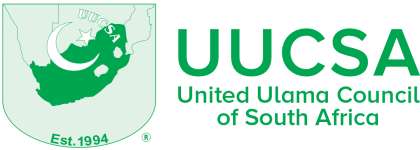How To Complete The CRL Religious Freedom Survey
When you’re answering the survey, you’ll find questions seeking examples of challenges to religious freedom you might have experienced. To ease this process for you, we’ve put together draft responses for areas covered in the Survey’s questions. Simply use the answers from our provided document and copy-paste them where suitable.
Every voice counts. Together, let’s ensure the flame of our faith burns brightly for all generations to come.
JazakAllah Khair,
Do you believe that your rights to religious freedom as guaranteed by section 15 of the South African Constitution are properly protected in current government policies and legislation?
The fairness test in the Equality Act doesn’t account for exercising religious freedom during instances of discrimination, resulting in potential biases against religious individuals and entities.
The 2023 General Laws Amendment Act mandates certain Non-profit Organisations (NPOs) to register with the Department of Social Development. This adds burdens on religious organizations like Masjids that already operate on limited funds and contribute significantly to community welfare.
The 2023 Anti-Terrorism Amendment Act is concerning as its broad “terrorism activity” definition could inadvertently target religious communities actively participating in civil dialogues and holding the government accountable.
Do you think that your religion and beliefs are equally respected and protected by the State compared to other rights in section 9 of the Constitution?
The Equality Act’s fairness test overlooks the exercise of religious freedom in discrimination scenarios, causing potential biases.
The Hate Speech Bill’s weak provisions for religious expression could diminish the protection of religious freedom in comparison to other fundamental rights.
Are you able to freely express and live out your religious beliefs in public without fear of repercussions?
We are concerned about the curriculum in life orientation, especially concerning sex education. Our students are assessed based on questions related to LGBTQ and other such topics which sometimes forces them to go against their religious beliefs to answer “correctly.”
Topics such as masturbation, which are not permissible in our religion, are being taught with value-based statements that do not align with our beliefs.
The use of slogans like “love is love” in assignments is biased and doesn’t provide room for diverse viewpoints or religious considerations.
Resources that represent Islam and LGBTQ matters are being promoted without proper representation or consultation with the broader Muslim community in South Africa. An organization listed under “LGBTI religious groups” for Islam does not accurately represent our community’s consensus.
We feel pressurized by the influence and lobbying of LGBTQ groups. While we want to articulate our disagreement respectfully, we face labels of intolerance and bigotry.
Do you believe you’ve been discriminated against for expressing your religious beliefs in public?
We are not pleased with some of the materials in school curricula that seem to advocate only one viewpoint, especially concerning LGBTQ matters. For instance, a chapter titled “Myths about LGBTI people” in a document titled “Challenging Homophobic Bullying in Schools” includes the statement “Being LGBTI is against my religion” as a myth. This invalidates and marginalizes our deeply held religious beliefs, which we find offensive.
Our community often faces labels such as “homophobic” when articulating our religious views on LGBTQ topics. This labelling is discriminatory as it does not allow space for our religious perspective.
There’s a prevailing sentiment that the government seems to favour lobbying groups more than considering the religious sentiments of its citizens, leading to a feeling of marginalization and discrimination.
The assumption that any disagreement with certain LGBTQ narratives equates to bigotry is unfair and creates an environment where expressing our religious beliefs becomes fraught with challenges.
Do you believe you can raise your children according to your faith and beliefs without government interference?
The Department of Basic Education’s (DBE) draft protocols don’t adequately recognize religion as a protected equality right and overlook the importance of preserving our morals and values.
The DBE’s draft guidelines on diverse sexual orientation and identity do not respect every learner’s right to religious freedom.
The DBE’s Policy on Learner Pregnancy introduces a Comprehensive Sexuality Education (CSE) program, which might not align with the values of many religious parents, raising concerns about its content and approach.
